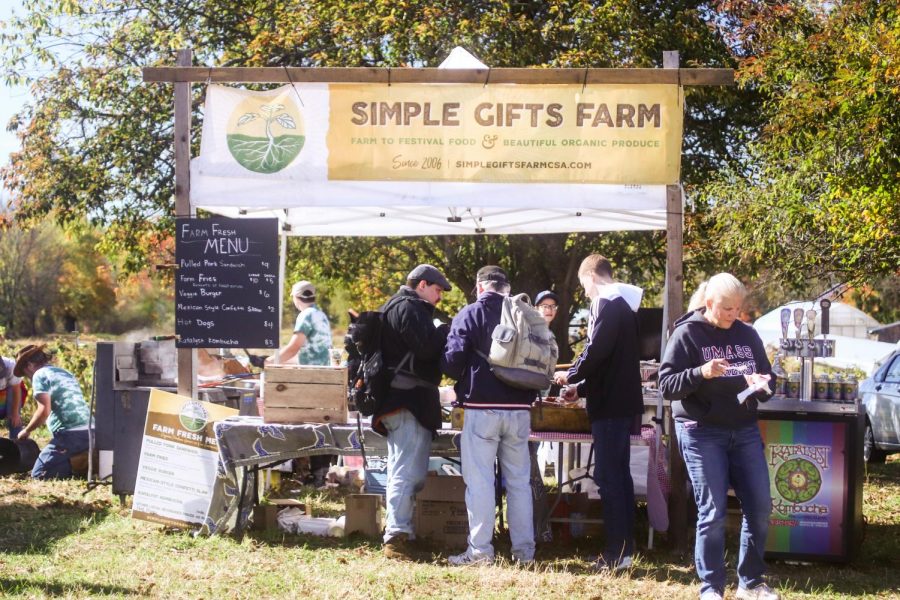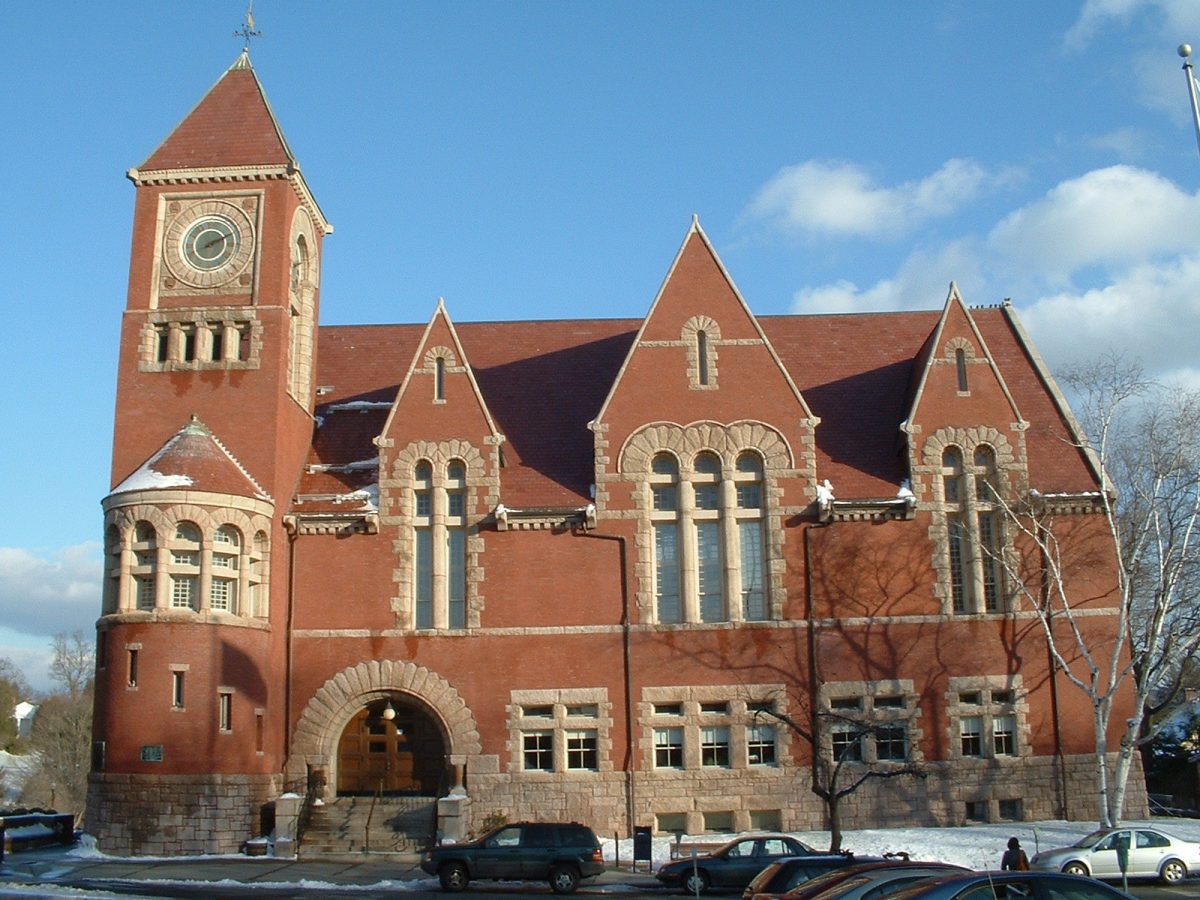In response to the COVID-19 pandemic, Gov. Charlie Baker declared a state of emergency, and, on March 23,ordered all non-essential business to cease in-person operations. With the local colleges and universities moving to online learning and business restrictions, the Amherst economy is rapidly changing.
Essential businesses include grocery stores, gas stations and hospitals. A full description of essential businesses can be found on Mass.gov.
The website also encourages businesses and organizations which are not deemed essential to more operations through “remote means that do not require workers, customers or the public to enter or appear at the brick-and-mortar premises closed by the order.”
In addition, the state website reads that, “Restaurants, bars and other establishments that sell food and beverage products to the public are encouraged to continue to offer food for take-out and by delivery if they follow the social distancing protocols set forth in Department of Public Health guidance continue operations. On-premises consumption of food or drink is prohibited.”
Many local restaurants remain open during this time and are communicating updates through social media, as well as their own websites.
The Lone Wolf, a restaurant on Main Street, has submitted a statement on their website reading, “Although this does present a challenge as a small business and to our loyal staff, some of whom have been a part of the Lone Wolf for over 10 years, we support keeping everyone safe and want to do our part in this process.” The restaurant intends to continue serving takeout Wednesday through Sunday, 8 a.m. – 1 p.m. by phone. They offer delivery services, like many other local restaurants, through Delivery Express or DoorDash.
Simple Gifts Farm is considered an essential business, both the farm and the store. Co-owner Jeremy Barker Plotkin said that, “We have actually seen an amazing outpouring of support for us during this crisis. It seems like people are interested both in supporting local farms and coming to us as a smaller retail environment.”
Simple Gifts, like many other businesses, is taking precautions to keep people safe. “We have a handwashing station outside the door, we are asking people to wash their hands before they come in and we are sanitizing surfaces in the store,” Barker Plotkin said.
Simple Gifts is actually doing better than usual businesswise. “It’s actually been really inspiring how much support we have gotten through this whole thing. Our business has actually leaped in the last couple of weeks,” Barker Plotkin said. “We are seeing more than double the business in the store.”
Simple Gifts is looking to institute an online ordering system where people can do curb-side pickup as well as implementing a delivery service.
“As farmers, we are used to working with a lot of uncertainty. We are always used to staying on our feet and adapting to situations, which is an advantage that we have,” Barker Plotkin said. In addition to the uncertainty of what the environment is going to be like, socially, is our business going to stay this high? Should we plant more of certain things? And do we hire more recruits to pick everything? And then like what if we plant a whole bunch of extra stuff and everybody gets sick? There’s just a lot of uncertainty.”
The executive director of the Downtown Amherst Business Improvement District, Gabrielle Gould’s job is typically to promote and create reasons for Downtown Amherst to be a destination.
The outbreak of COVID-19, and in turn its effect on local business, has changed the day to day of the BID. Gould said she is, “spending a lot of time emailing, calling and working with our local, state and federal offices basically looking at everything from, making sure evictions cannot happen during this period of time, working with banks to request and almost demand that they put delays on mortgage payments for our land owners who are working with their tenants and not receiving rent right now.” Additionally, the BID is demanding a streamline unemployment processes and broadening the unemployment spectrum to accommodate those without salary jobs, such as artists, photographers and musicians.
“We are also working with our local business on what their insurance is and is not covering and helping them navigate what that means and helping them navigate what they should shut down at this point and, basically, looking at where we can help them save every penny they can so that when we are ready to get back open, they have the startup costs to do so,” Gould said.
Gould said that the downtown Amherst area is “beyond dead.” And that it is “really hard and sad to walk through, which [she] did yesterday. Over 80 percent of our businesses are either closed or operating at a quarter of their capacity. Most of our restaurants are down to their chef and their owner and they are of course doing takeout only based on Governor Baker’s call.”
“It’s probably not all just going to go back to the way we knew it… this community is going to need a lot of support, and when the students are back, we are really going to encourage them and to the best of their financial ability to come in and support our local businesses,” Gould said.
Gould also discussed how many restaurants and downtown businesses are still open for takeout and have cut down on staff to fight the decrease in revenue: “There is the opportunity to lose some of our businesses during this period of time. They will not have the financial wherewithal or the energy to come back from this and that is something we want to, with federal and state grants and if need be, some low interest loans, we want to try to protect as many of them [from] as possible.”
Although Gould supports taking precautions to limit the spread of COVID-19, she said that she thinks it will get worse before it gets better. “The one thing we can all say is that in a way, the good news is, we are not alone, and the bad news is, we are not alone. We are talking about an entire nation and an entire world.”
There are many other businesses in Amherst which are not considered “essential.”
Nat Herold is the president of the Amherst Books company. Amherst Books, on Main Street, is not open for browsing, but is taking orders over the phone and by email.
“We’re ordering books from publishers every day; we’re getting new stock in,” he said. This includes special orders.
Seeing that the store is closed, they are putting books on a bench for customers to come and retrieve and are delivering to the local area. Although the company does ask for a contribution to ship the books, they are not requiring it.
“It’s not the same than as if our doors were open, but we are doing pretty good business. From about 9 a.m. to 2 p.m. it tends to be pretty hectic,” Herold said. “We are paying the staff who are not comfortable coming into work, which is most of them, we’re paying them a percentage of their salary.”
Amherst books is taking precautions by sanitizing their books and themselves regularly. With libraries and schools closed, Amherst books has dedicated themselves to remaining open. Patrons from the Jones’s library are being sent to Amherst Books to fulfill their literary needs.
“We’re all depending on support to survive,” Herold said. “It’s been competition between online stuff and local stuff for some time, but this really is a struggle.”
Amherst Books is also petitioning the Commonwealth to become an essential business with the help of Rep. Joanne Comerford.
“The Commonwealth has designated liquor stores as essential; books are a better way of keeping oneself occupied,” Herold said.
Cassie McGrath can be reached at [email protected] and followed on Twitter @cassiemcgrath_.





















Ed Cutting, EdD • Mar 29, 2020 at 5:04 pm
” when the students are back, we are really going to encourage them and to the best of their financial ability to come in and support our local businesses,” Gould said.”
.
I’m wondering if the students *are* coming back in the numbers they were. If this goes into the fall, which a lot of people are saying it will, why would an out-of-state student want to pay out-of-state tuition for distance learning at UMass when their state university offers the same thing for 1/3 to 1/5 the cost?
.
And how many students, stuck with a lease for an off-campus apartment this year, are going to sign one another one this spring? My guess is that a *lot* more students are going to be commuting from home.
.
And the ultimate wild card here is the State Budget — capital gains went out with the stock market, income and sales tax revenue is way down, and state expenses are way up. Unlike the feds, the state has to balance its budget — and there may be a mid-year cut to the UM Budget for the fiscal year that ends June 30th. There almost certainly will be one in the FY-2011 budget…
.
It will be interesting….